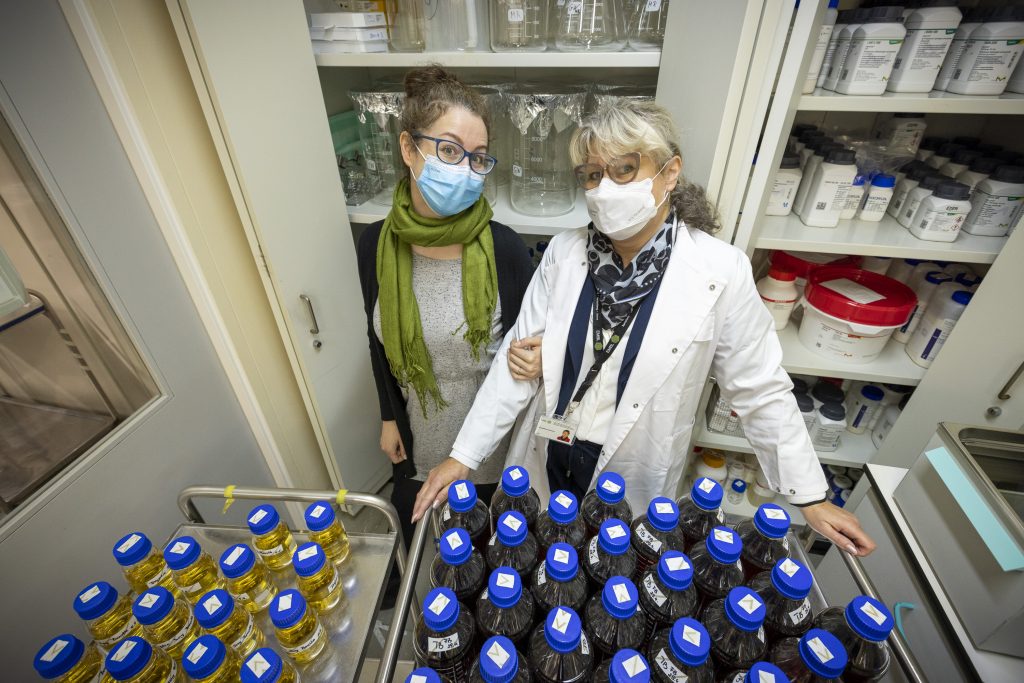Lab Kitchen Services – A hidden gem for lab sustainability
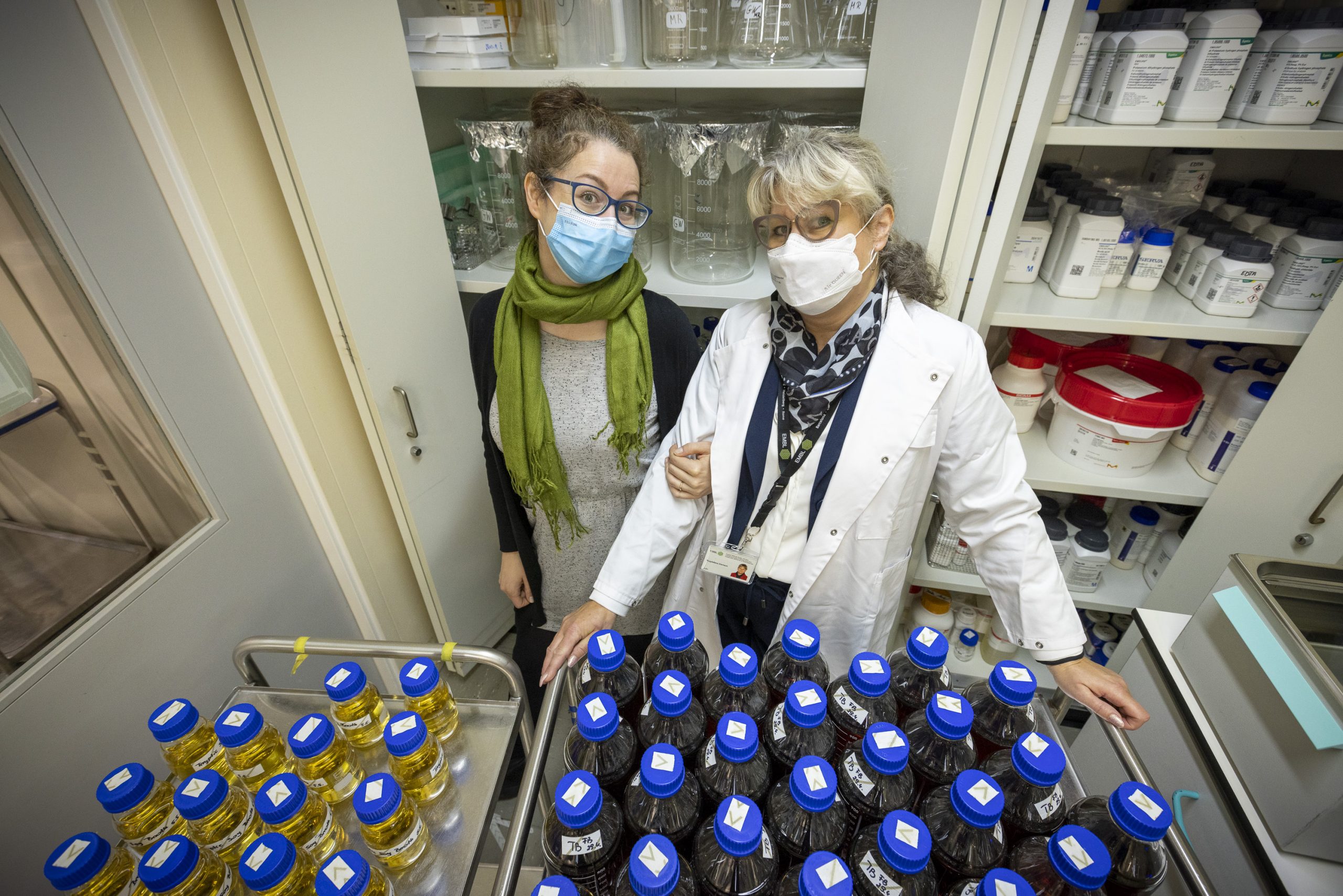
In this first edition of EMBL Sustainability Stories, we tell you about Magdalena Gierlach, supervisor of the lab kitchen services, and the continuing contribution of her team to EMBL’s sustainability journey.
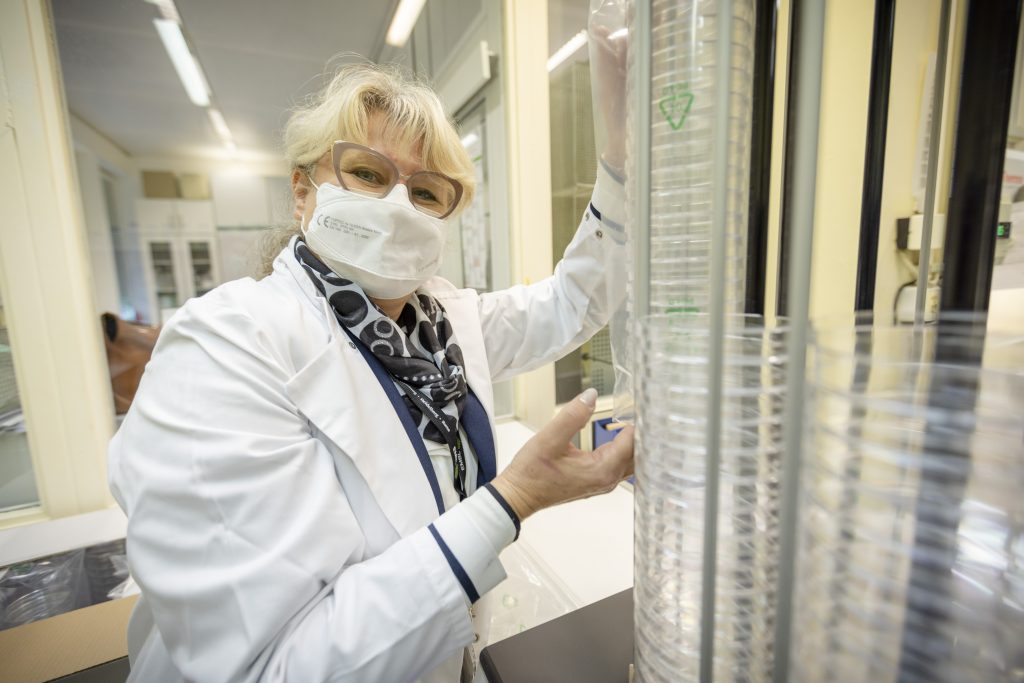
Researchers, who make up 0.1% of the population, generate almost 2% of the global plastic waste, data that underlines the importance of our efforts to reduce and reuse. A recent study calculated that reusing labware instead of using single-use versions can bring about an 11-fold reduction in the associated CO2 footprint. EMBL’s lab kitchen services play an important role in encouraging and enabling such behaviours.
Magdalena Gierlach started working for EMBL in 1996 and has worked to support and facilitate EMBL’s science ever since. In conversation with her, she told the Sustainability Team of all the services her team offers and we discussed how they can support EMBL’s sustainability goals.
Indeed, this may come as a surprise, but the services Magdalena and her team provide to EMBL members are extremely valuable, not only to facilitate research but also to support our sustainability strategy. “I was really happy to hear about the environmental benefits that the lab kitchen offers and we want to continue to help EMBL reduce its environmental impact in the future,” Magdalena said.
Magdalena’s team is distributed into three general-purpose kitchens, one media kitchen and one fly kitchen. They are in charge of supplying labs with many different reagents and labware. Their work contributes to reducing our environmental footprint at several different levels; the reduction of plastic waste being one of the most relevant.
A good example of these efforts is the pipette tip refilling and sterilisation pipeline established by the kitchens, which is tailored to meet the different requirements of our units. The team normally refills the boxes from stackable tip racks but during the pandemic, they had an alternative plan to ensure the undisturbed supply of tip boxes: buying single tips and refilling the boxes manually.
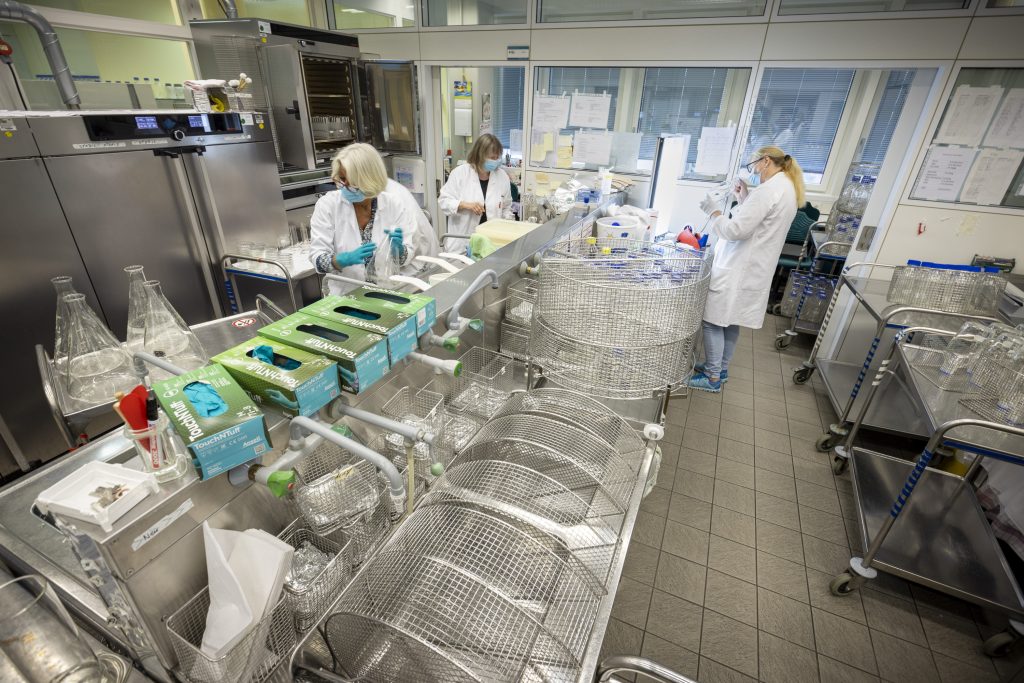
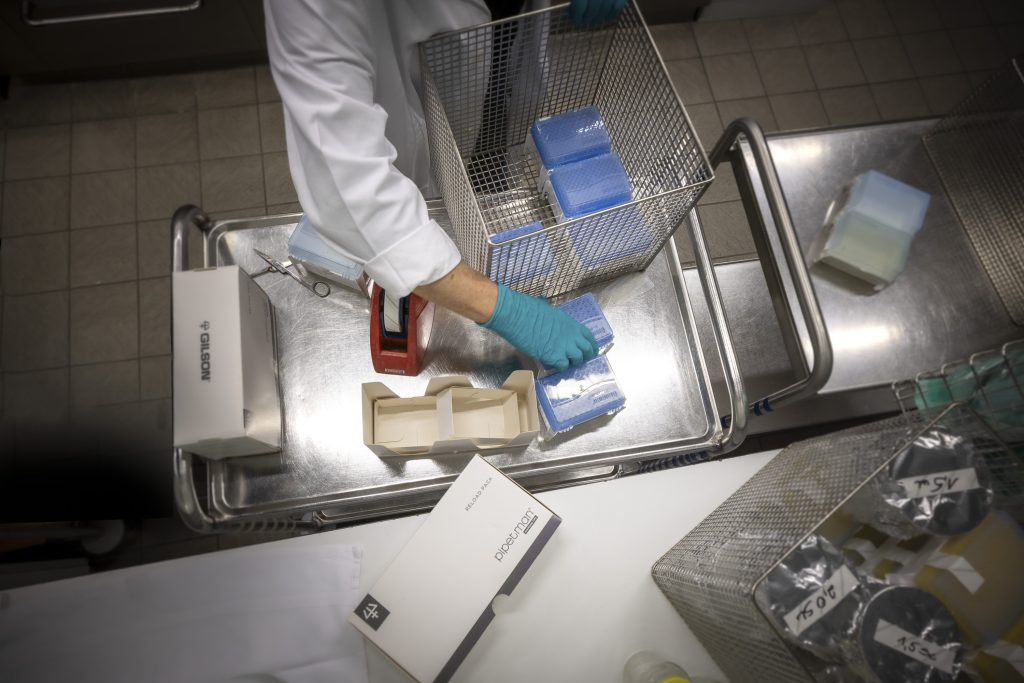
Another invaluable pipeline established by the team is the collection, cleaning, and sterilisation of glassware, such as serological pipettes and measuring instruments, which reduces our dependence on single-use plastics. The kitchen services also provide labs with several essential sterile reagents, such as water and phosphate-buffered saline (PBS), preparing more than 150 litres a week of the latter. In the most extreme case, this is keeping us from using and discarding up to 300 plastic bottles a week. The service maintains a strict separation between the reagents used for cell culture and any other lab-used bottles to ensure sterility.
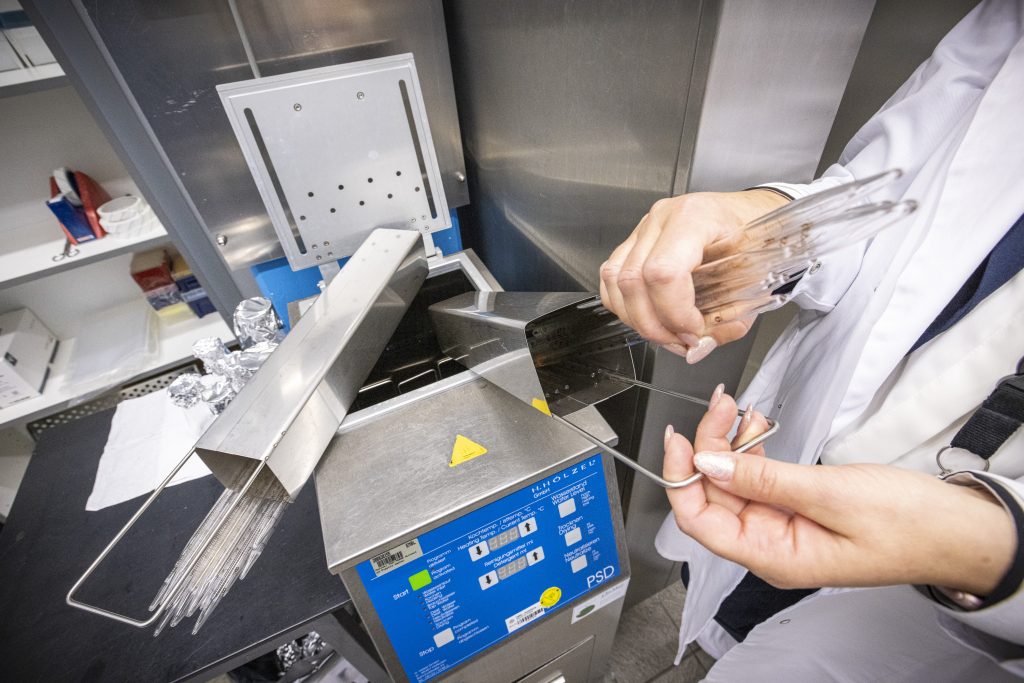
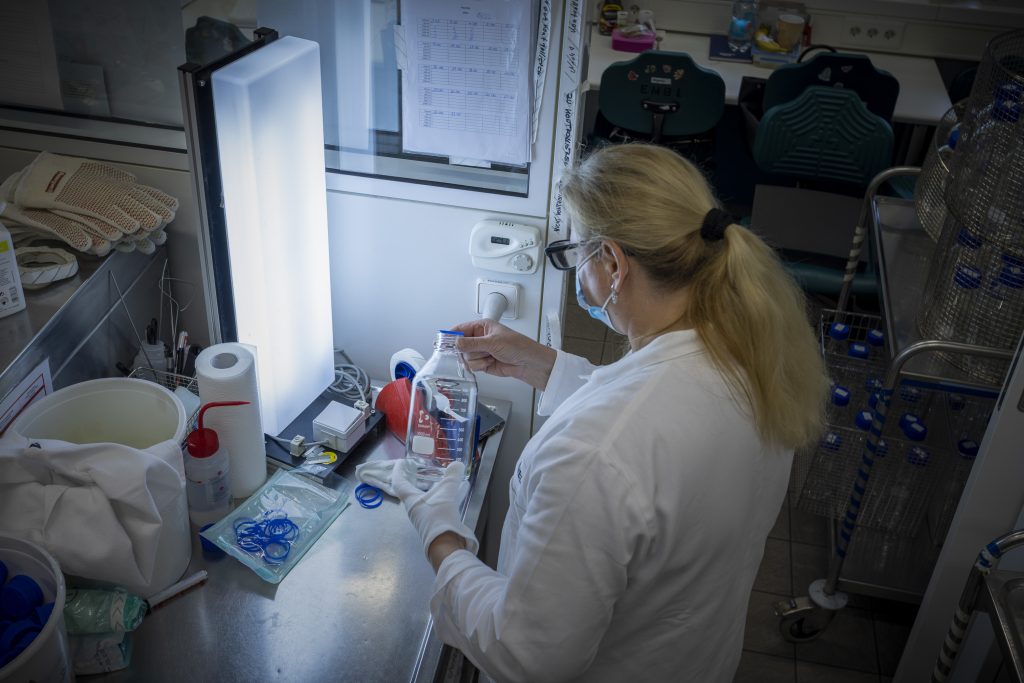
However, PBS is only the tip of the iceberg. The media kitchen also produces cell culture media and has never had, in more than 20 years, any reports of contamination. They also make other commonly used reagents and can even adapt the production to certain special circumstances and user needs.
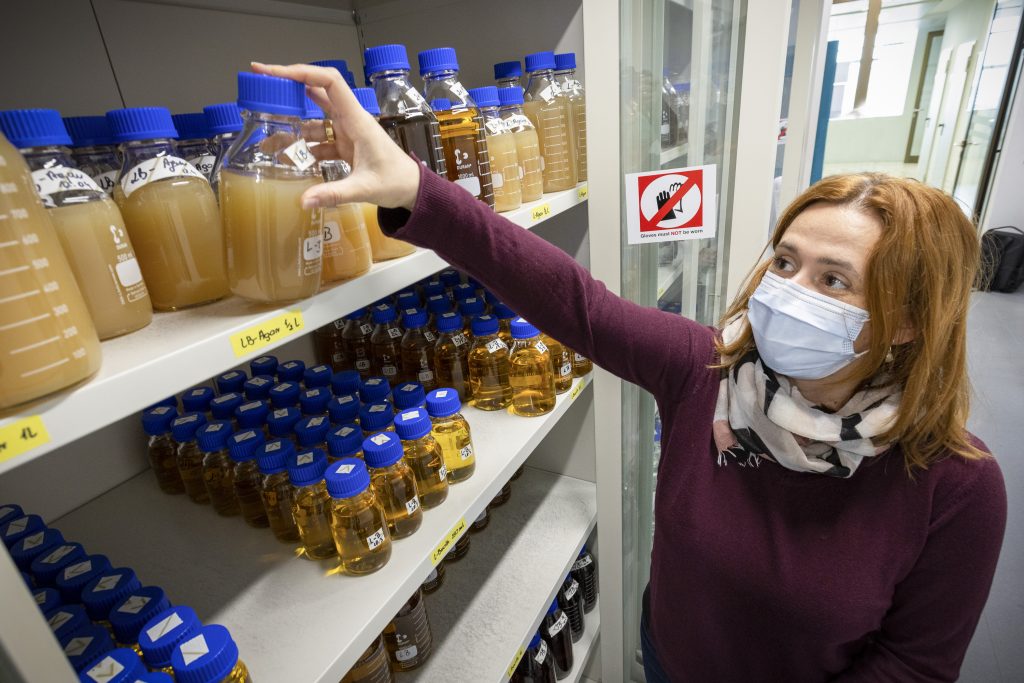
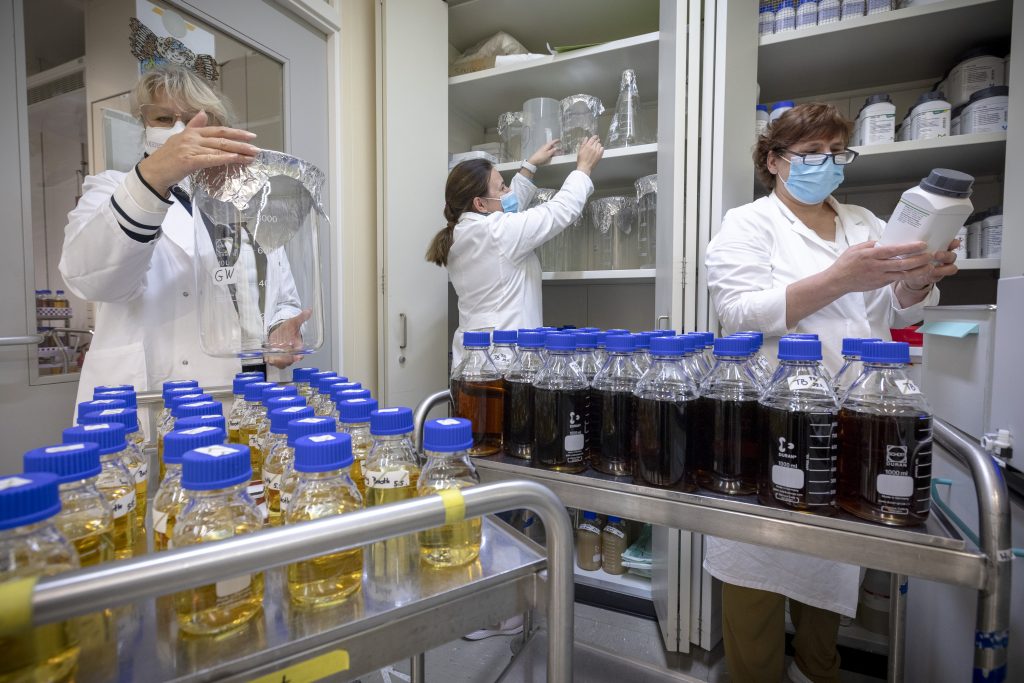
It is clear that our lab kitchens are working hard to make EMBL more sustainable. They reduce our dependence on precious resources and reduce our waste volumes. So, if you have ever considered how you can be more sustainable in your research, perhaps look into the services that lab kitchens provide and see if you can use them more often.
